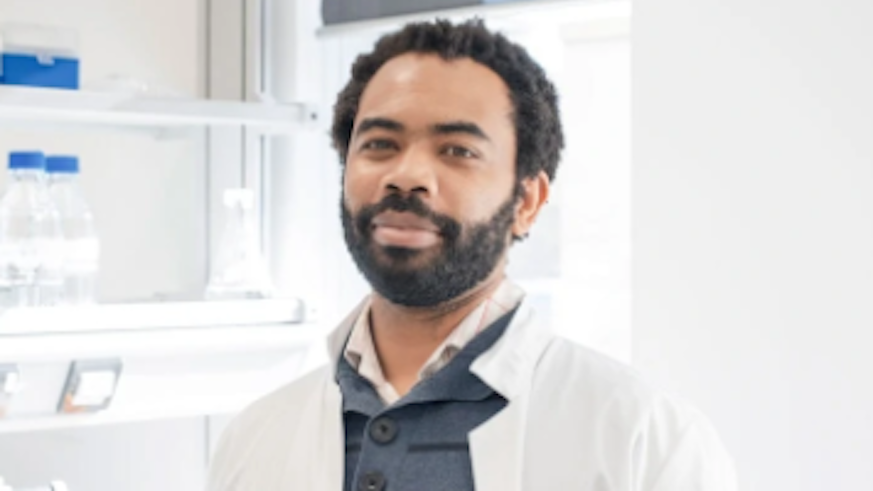DRI academic features in ‘Being Black in Physiology’ video campaign
4 October 2021

A physiologist from the Dementia Researcher Institute (DRI) has been featured in The Physiological Society’s latest campaign raising awareness of how few Black academics hold senior positions in higher education institutions in the UK.
Dr Dayne Beccano-Kelly, UK Research and Innovation Future Leader Fellow based in the Division of Psychological Medicine and Clinical Neurosciences, has been involved with the creation of a new video emphasising the importance of diversity in physiological research.
The video, produced by The Physiological Society, interviews three Black academics about their experiences in academia and highlights the fantastic research that they are carrying out to improve our understanding of how the body works in health and disease.
Dr Beccano-Kelly said “In the UK, less than 1% of university professors are Black. As I moved through academia, I began to notice a diminishing amount of academics were Black at my level or above in the institutes and departments I was a part of.”
“It’s always nice to see the path you aspire towards is possible and one of the things I resolved to do, after seeing first hand so few Black academics in senior positions, was to decide that I wanted to be one myself. I wanted to be in a position to help other individuals.”
Dr Beccano-Kelly’s research focuses on Parkinson’s disease, a neurodegenerative disorder that is caused by a loss of neurons in the brain that control movement. His lab work in the DRI aims to identify early signs of degeneration associated with the disease, focusing on the electrical communication between neurons.
“The equipment in the DRI here at Cardiff University allows us to understand not only what is going wrong, with the communication between the cells of the brain. My research aims not only at identifying what changes happen in this communication but when it is going wrong, something far less understood. I’m looking forward to continuing to work alongside my team as we strive to improve the lives of people living with neurogenerative disorders.
“I’d like to thank The Physiological Society for featuring me alongside such fantastic scientists as Dr Sandra Agyapong-Badu from the University of Birmingham and Dr Priscilla Day-Walsh from Quadram Institute Bioscience in Norwich.”
“We must continue to strive for greater diversity and inclusion in academia which is vital to improving scientific discovery and excellence.”
The Physiological Society brings together over 4000 scientists from over 60 countries. Since its foundation in 1876, its members have made significant contributions to the knowledge of biological systems and the treatment of disease.
The Physiological Society produced the video ‘Being Black in Physiology: Diversity for Scientific Excellence’ which is available online and can be viewed here: www.physoc.org/diversity
